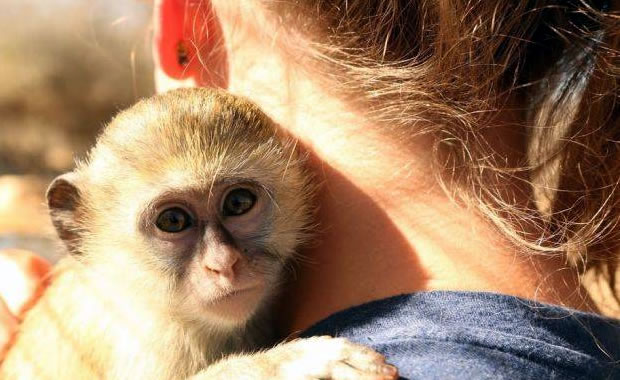Creature Profile
The blue whale is the largest of all whales and is said to be the largest animal in Earths history. The average length of an adult blue whale is 79 to 88 feet and the average weight is 130 to 150 tons. Blue whales are blue to blue-gray and may sometimes appear to have a faint yellow skin color because of the many microorganisms that accumulate on their bodies as they travel through colder waters. Blue whales prefer cold waters and open seas and prefer not to venture near coastal areas. However, some whales have been seen off the coast of Peru.
The blue whale eats mostly krill (small shrimp-like crustaceans) by using its baleen plates lining its mouth to sieve krill from the water. It can consume several tons of krill daily. Researchers have believed that the blue whale only eats in the summer, seldom eating during the rest of the year. But recent research has suggested that some blue whales of the north may eat year-round and that blue whales found traveling with empty stomachs may stop eating during migration and resume feeding at wintering areas.
Blue whales only mate in warmer waters and the gestation period lasts 10 to 11 months. The females give birth to only one calf in the spring which gives the calf the entire summer to grow a layer of blubber needed to protect it when traveling through colder waters. The calves nurse for around seven months.
There are three subspecies of blue whales. The blue whales of the northern and southern hemispheres generally come together for mating, but they are considered two separate subspecies, Balaenoptera musculus musculus and Balaenoptera musculus intermedia. The third subspecies, the pygmy blue whale (Balaenoptera musculus brevicauda), is smaller than the others, and it is found in the sub-Antarctic waters of the Indian Ocean and the southeast Atlantic Ocean. Over 350,000 whales have been hunted and killed, and by the 1960s, blue whales were on the edge of extinction. There are probably only around 2500 blue whales left in the oceans and they are now legally protected despite opposition by the whaling industry.
Wikipedia Article

|
Wikipedia Article Copyright Notice: This article is licensed under the GNU Free Documentation License. It uses material from the Wikipedia article "Blue whale". |
More Links about the Blue Whale:
Reference Links:Blue Whale - American Cetacean Society
Conservation Links:
Whale and Dolphin Conservation Society
May 8, 2017
Glenn, C. R. 2006. "Earth's Endangered Creatures - Blue Whale Facts" (Online). Accessed 4/26/2024 at http://earthsendangered.com/profile.asp?sp=927&ID=10.
Need more Blue Whale facts?






